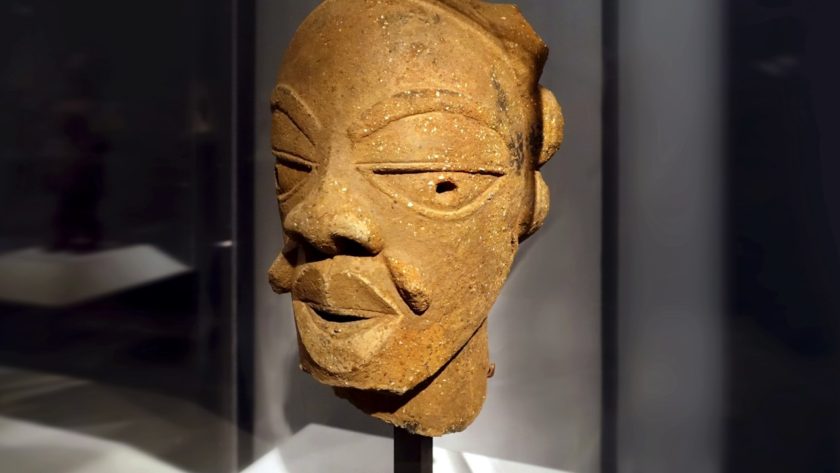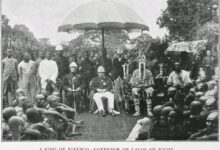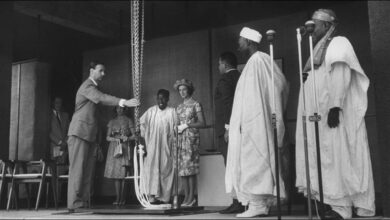The Rich and Diverse History of Africa: A Journey Through Time

Africa often called the cradle of civilization, is home to some of the world’s most fascinating and diverse histories. From ancient kingdoms and powerful empires to colonial struggles and modern-day developments, Africa’s past is deeply woven into the fabric of human history. The continent has given rise to great leaders, groundbreaking civilizations, and revolutionary movements that have shaped Africa and the rest of the world.
As Africa’s history is deeply intertwined with economic and cultural transformations, modern advancements like digital technology and online entertainment are becoming integral to its present. In recent years, 1win South Africa has emerged as a leading platform for online gaming and sports betting, reflecting Africa’s technological and economic evolution. This article explores Africa’s rich history, from ancient civilizations to colonial resistance, independence struggles, and modern developments that continue to shape the continent.
1. The Birthplace of Humanity
Africa is widely accepted as the birthplace of modern humans. Fossil evidence suggests that early hominids emerged in Africa around 6-7 million years ago, with Homo sapiens originating in East Africa around 200,000 years ago.
Key Discoveries:
✔ The Great Rift Valley – Often called the “cradle of mankind,” this region in East Africa has yielded some of the oldest human fossils.
✔ Olduvai Gorge (Tanzania) – Archaeological findings here suggest early humans used stone tools over 2 million years ago.
✔ Blombos Cave (South Africa) – Evidence of early human creativity, including art and beadwork dating back 75,000 years.
Africa’s role in human evolution highlights its importance in understanding how modern civilization began.
2. The Great African Kingdoms and Empires
Before European colonization, Africa was home to powerful and sophisticated kingdoms that flourished through trade, culture, and military strength. These empires left behind a legacy of art, architecture, governance, and innovation.
A. Ancient Egypt (3150 BCE – 30 BCE)
One of the world’s earliest and most influential civilizations, Ancient Egypt is known for:
✔ The construction of pyramids and temples.
✔ Hieroglyphic writing, one of the earliest writing systems.
✔ Advanced mathematics, medicine, and astronomy.
B. The Kingdom of Kush (1070 BCE – 350 CE)
Located in present-day Sudan, Kush was a significant trading power that:
✔ Built massive pyramids, even more numerous than those in Egypt.
✔ Ruled over Egypt as the 25th Dynasty (the “Black Pharaohs”).
✔ Traded gold, ivory, and iron with the Mediterranean world.
C. The Mali Empire (1235 – 1600 CE)
Thanks to its gold trade and legendary rulers, the Mali Empire was one of the most prosperous civilizations in history.
✔ Mansa Musa (r. 1312–1337) – Considered the wealthiest man in history, his pilgrimage to Mecca displayed Africa’s vast riches.
✔ Timbuktu – A global learning center, home to the famous University of Sankore.
D. The Great Zimbabwe Kingdom (1100 – 1450 CE)
✔ Built massive stone structures without mortar, including the Great Zimbabwe ruins.
✔ Controlled regional gold and ivory trade with the Swahili Coast.
These great civilizations demonstrate that Africa was home to advanced societies long before European contact.
3. The Trans-Saharan and Indian Ocean Trade Networks
African kingdoms became wealthy by controlling trade routes that connected Africa to Europe, the Middle East, and Asia.
Key Trade Routes:
✔ Trans-Saharan Trade – camel caravans transported Gold, salt, and ivory across the desert.
✔ Swahili Coast Trade – African merchants traded with Arabs, Indians, and Chinese, exchanging goods like spices, textiles, and ceramics.
These trade networks fostered cultural exchange, religious expansion (Islam and Christianity), and economic growth.
4. The Age of Colonization and African Resistance (1400s – 1960s)
The Scramble for Africa (1881-1914) saw European powers carving up the continent for resources, resulting in wars, oppression, and forced labor. However, Africans resisted colonization through military battles, political movements, and diplomatic negotiations.
Major Anti-Colonial Leaders & Resistance Movements:
✔ Shaka Zulu (1816–1828) – Unified the Zulu kingdom and resisted British and Boer invasions.
✔ Samori Touré (West Africa) – Led military campaigns against French colonial forces.
✔ Menelik II (Ethiopia) – Successfully repelled Italian forces at the Battle of Adwa (1896), keeping Ethiopia independent.
The African independence movement gained momentum in the 20th century, leading to the decolonization of most African nations by the 1960s.
5. Post-Independence Africa: Challenges and Progress
Following independence, African nations faced political instability, economic struggles, and civil conflicts. However, many countries have risen above these challenges, showing remarkable growth and innovation.
A. Economic Growth and Industrialization
✔ Nations like South Africa, Nigeria, and Kenya have developed strong economies.
✔ The rise of African tech hubs in Lagos, Nairobi, and Cape Town.
✔ Growth in industries like telecommunications, agriculture, and entertainment.
B. Digital Revolution & Online Finance
✔ Mobile banking and fintech solutions like M-Pesa have revolutionized finance.
✔ Online businesses and e-commerce have expanded economic opportunities.
C. The Role of Gaming & Sports Betting in Africa
Online gaming and sports betting have become major industries, offering job opportunities and economic benefits. Platforms like 1win South Africa have capitalized on this trend, providing users with secure online gaming experiences.
6. The Future of Africa: A Continent on the Rise
Africa’s future is bright, with youthful demographics, technological advancements, and a growing economy. Here are key areas of development:
✔ Green Energy & Sustainability – Countries are investing in solar and wind energy.
✔ Technological Innovation – Growth in AI, blockchain, and digital finance.
✔ Infrastructure Development – Improved transportation, housing, and connectivity.
As Africa continues to develop, it stands as a global leader in innovation, culture, and economic potential.
Conclusion: Honoring Africa’s Past, Embracing its Future
Africa’s rich history is filled with great empires, resistance movements, and incredible advancements that have shaped both the continent and the world. From the kingdoms of old to modern digital revolutions, Africa has always been a center of innovation and resilience.
Today, as economic opportunities expand through technology, online gaming, and digital finance, platforms like 1win South Africa reflect Africa’s continued transformation into a modern powerhouse.
📌 As Africa embraces the future, its history remains a guiding force—a story of strength, courage, and limitless potential. 🌍✨
Questions? Advert? Click here to email us.












